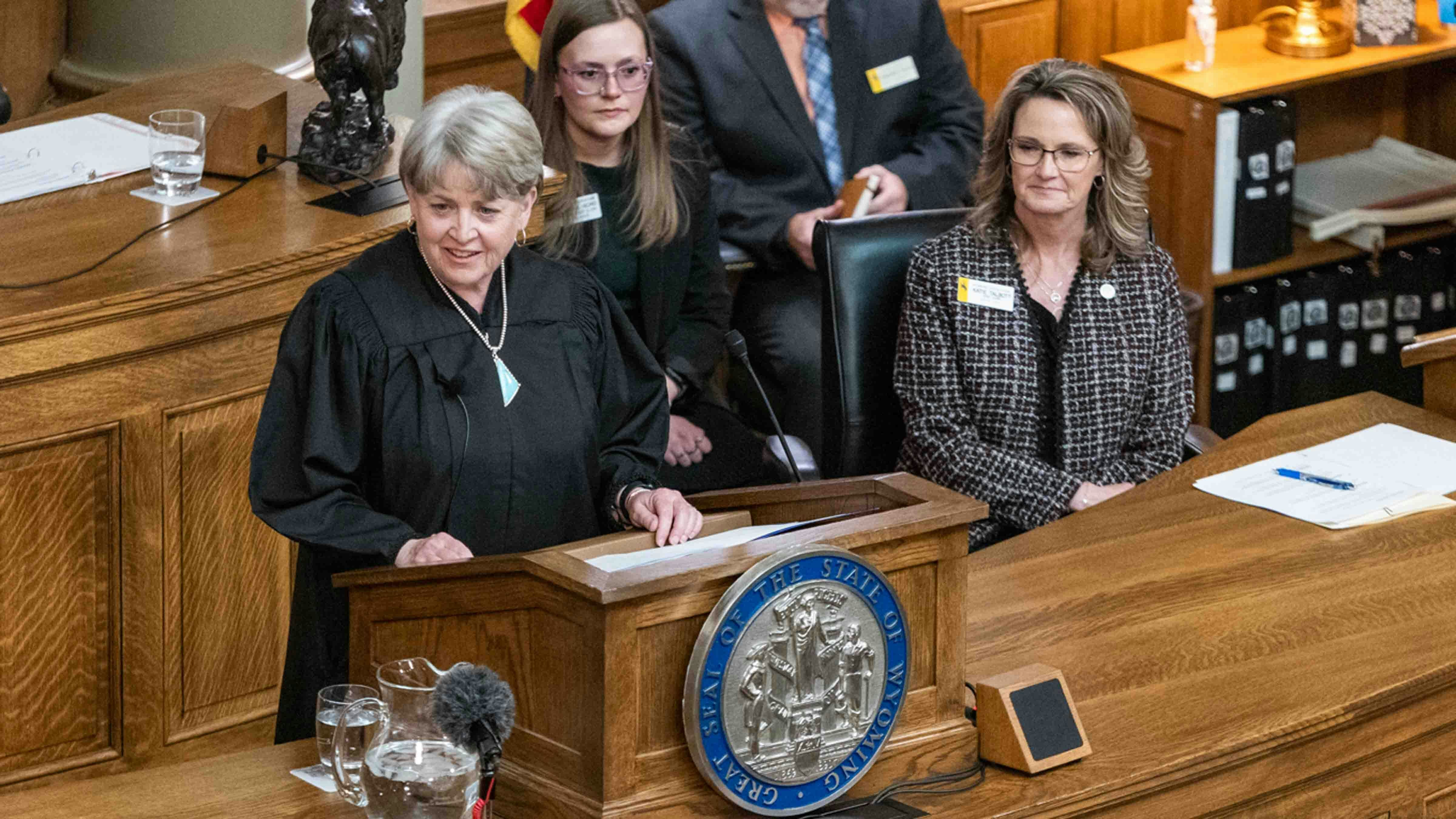Wyoming’s secretary of state asked a federal judge Friday to dismiss a lawsuit against the state’s new proof-of-citizenship voting law, saying the people suing to stop the law haven’t shown that it could harm them.
The Equality State Policy Center, which is a coalition of other nonprofit groups, sued Secretary of State Chuck Gray on May 9 to stop a new law which, after Tuesday, will require proof of U.S. citizenship and 30 days’ Wyoming residency to register to vote in the state.
The group said the law will heap unnecessary burdens on challenged groups like women, products of the foster-care system, transgender people, some Hispanic people and others.
Those claims of harms are based on a chain of speculation not tied to any actual identified victims of the law, Michael A. Columbo of the Dhillon Law Group argued in a counter-filing he submitted Friday on behalf of Gray’s office.
The Equality State Policy Center doesn’t have “standing” to wage this case, Columbo argued, citing a requirement that the judicial branch only hear cases where the person suing could be harmed by the person being sued, and a court is able to remedy that harm.
The center says the new law will force it to “redirect significant resources to increase its voter registration education efforts” and to translate the new election rules for people instead of working on its usual tasks, according to court documents.
Having to beef up educational or advocacy efforts isn’t a concrete and particularized injury, Columbo argued in Friday’s filing.
He cited FDA v. Alliance for Hippocratic Medicine, a 2024 U.S. Supreme Court Case in which the high court ruled unanimously that a coalition of pro-life groups wasn’t directly affected by the availability of an abortion drug, and so lacked standing to sue the U.S. Food and Drug Administration.
That same ruling should exclude the Equality State Policy Center, Columbo reasoned.
He added that the harms the Center asserts — like some people struggling to get the required documents to voter registration sites — are a “speculative chain of possibilities” that aren’t ripe for controversy anyway since the next state election isn’t until August 2026.
Some of the groups within the suing coalition try to remedy this by pointing to potential problems for victims of domestic violence and others, wrote Columbo, but they didn’t identify these people specifically.
“Specificity (is) required to demonstrate associational standing,” he added.
Time, Place And Manner
In another Friday filing, Columbo opposed the Equality State Policy Center’s request for the judge to block the law from going into effect.
The new voter law, Columbo argued, falls within the U.S. Constitution’s promise that states can regulate voting, it does not overly burden people exercising the right to vote and is reasonable and nondiscriminatory.
Columbo asked the court to apply a light standard in reviewing the law’s constitutionality, and said Wyoming’s interests in voter integrity “easily satisfy” that standard of review.
Priorities, Says Gray
Gray in a statement sent Saturday to Cowboy State Daily said the law’s measures are “commonsense, conservative measures pivotal to election integrity, which is why House Bill 156 was the No. 1 priority of our conservative election integrity agenda during the 2025 Legislative Session.
“We have been enormously successful in championing these essential election integrity measures which has placed us in the crosshairs of the radical left.”
Gray derided attorney Marc Elias, whose firm is listed as co-counsel for the Equality State Policy Center in the case.
The secretary called his own Friday motion to dismiss the case a strong argument, and said, “I am confident that the truth will win out and this lawsuit will be dismissed.”
The Harms Alleged
The new law will also disallow using any documentation showing the person is not a U.S. citizen to register to vote.
The Equality State Policy Center’s lawsuit says the following groups will face a higher risk of disenfranchisement under the law:
• Women whose new married or divorced names might not reflect their identifying documents.
• Transgender people in a similar plight from changing their names.
• Hispanic people who are eligible to vote but may struggle with the documentation.
• People who lack stable housing.
• People who were adopted or taken into foster care.
• People too disabled to drive and have a driver’s license.
• Young voters.
• People in rural areas where the driver services offices keep sporadic and sparse hours of operation.
Making It Tougher
The complaint says the law places an undue burden on the right to vote and is unconstitutionally vague.
"Wyoming has a proud tradition of fair and secure elections, and there is no evidence of non-citizen voting or widespread fraud to justify the harsh new restrictions in HB 156," ESPC Executive Director Jenny DeSarro said in a May 9 statement attached to the lawsuit.
The lawsuit comes after Gov. Mark Gordon allowed the bill to become law without his signature.
Gordon, a Republican, cited legal concerns for not signing it and worried the law “adheres to neither the original construction of our Constitution nor federal law.”
Gordon said Wyoming has an "excellent track record with election integrity and security."
Under existing Wyoming law, voters already must provide proof of identity and attest under penalty of perjury that they are U.S. citizens living in Wyoming.
HB 156 goes further by requiring specific documentation to prove citizenship and residency status, and requiring voters to attest that they have resided in Wyoming for at least 30 days before casting a ballot.
Voter fraud in Wyoming is rare, and the case of a non-citizen voting that the bill’s proponents cited during its advancement wouldn’t have been captured by it anyway since the culprit had fraudulently obtained a driver’s license, the complaint says.
It also laments what it calls Wyoming’s low voter turnout, with 44% of eligible Wyomingites voting in the 2022 general election.
“The Legislature has voted to make it harder (to vote) with HB 156, based on scaremongering about noncitizen participation,” says the complaint. “Wyoming’s elections will become even less reflective of the actual will of its residents than they currently are.”
Here Come The Republicans
The Republican National Committee on Thursday asked the case judge to let it join the case in defense of Wyoming’s new law.
The party argued it has the right to intervene because of its interest in getting Republicans to vote and instilling in them a trust in elections systems, the filing says.
Clair McFarland can be reached at clair@cowboystatedaily.com.





